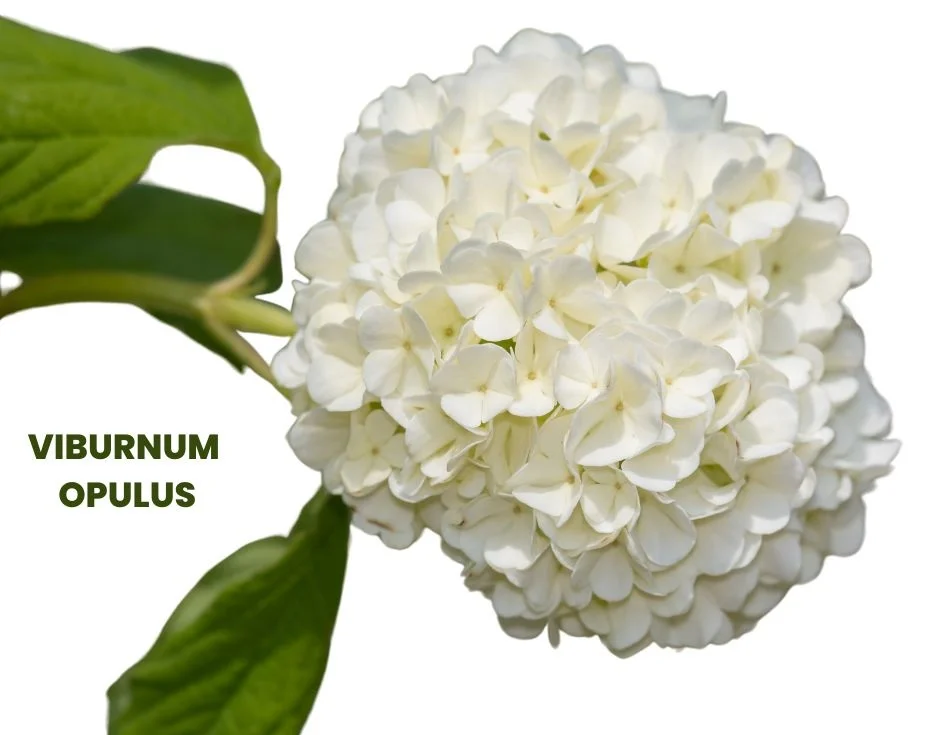Viburnum opulus, commonly known as High Cranberry or Guelder Rose, is a deciduous shrub belonging to the Adoxaceae family.
In homeopathy, it is particularly valued for its efficacy in treating various types of cramps, especially those related to the pelvic region, and is often utilized in female reproductive health.
The remedy is made from the fresh bark and leaves of the plant, with applications ranging from menstrual irregularities to preventing miscarriage.

Table of Contents
ToggleSOURCE INFORMATION
Scientific Classification
- Kingdom: Plantae
- Phylum: Angiosperms
- Class: Eudicots
- Order: Dipsacales
- Family: Adoxaceae
- Genus: Viburnum
- Species: V. opulus
Origin and Historical Facts
- Viburnum opulus is native to Europe, Asia, and North America.
- Historically, its berries and flowers have been used in traditional medicine for their purported health benefits.
- The plant has also been associated with various folk remedies, particularly for treating female ailments and menstrual disorders.
- The homeopathic use of Viburnum opulus was popularized in the 19th century, following the principles of homeopathy that emphasize treating the whole individual rather than just specific symptoms.
DRUG PATHOGENESIS
- Viburnum opulus acts primarily on the female reproductive system, particularly during menstruation and pregnancy.
- It helps alleviate spasmodic and congestive conditions that arise from ovarian or uterine disturbances.
- The remedy is recognized for its ability to reduce the intensity of cramps and promote overall uterine health, making it beneficial during pregnancy and menstruation.
PHYSICAL CONSTITUTION
- Individuals who may benefit from Viburnum opulus often have a sensitive constitution, particularly regarding their reproductive health.
- They may be prone to cramping and discomfort, especially during their menstrual cycle or in relation to pregnancy.
- These individuals might also exhibit signs of irritability and nervousness during these times.
WHAT IS CONSTITUTION IN HOMOEOPATHY?
DIATHESIS AND TEMPERAMENTS
- Viburnum opulus is particularly effective for those with a sanguine temperament, characterized by emotional sensitivity and an optimistic outlook but prone to mood fluctuations due to physical discomfort.
- The remedy is also suited for those with a lymphatic diathesis, indicated by conditions of congestion and sensitivity.
WHAT IS DIATHESIS IN HOMOEOPATHY?
WHAT ARE TEMPERAMENTS IN HOMOEOPATHY?
KEY CHARACTERISTICS
- Effective for treating cramps and colicky pains, especially in the pelvic region.
- Particularly beneficial for female reproductive health and managing menstrual disorders.
- Symptoms often aggravated by lying on the affected side and relieved by open air and rest.
DETAILED ORGAN SYMPTOMS
HEAD
- Irritability: Heightened sensitivity and emotional responses.
- Vertigo: Feelings of dizziness, often as if the individual is falling forward.
- Temporal Pain: Severe pain localized in the temporal region of the head.
- Sore Eyes: Discomfort and soreness in the eyeballs, possibly linked to tension.
STOMACH
- Nausea: Persistent nausea, which is somewhat alleviated by eating.
- Loss of Appetite: A significant decrease in the desire to eat.
ABDOMEN
- Cramps: Sudden, painful cramps and colicky sensations in the abdominal area, particularly around the umbilicus.
- Tenderness: The abdomen may be tender to touch, indicating underlying distress.
FEMALE REPRODUCTIVE SYSTEM
- Menstrual Irregularities: Late and scanty menstrual flow that lasts only a few hours and may have an offensive odour.
- Pelvic Congestion: A heavy feeling in the ovarian region, often accompanied by cramping that radiates down the thighs.
- Leucorrhoea: Abnormal, excoriating vaginal discharge with smarting and itching sensations.
- Pregnancy Complications: Frequent miscarriages and labour pains that may be false or spasmodic in nature.
URINARY SYSTEM
- Urinary Urgency: Frequent urges to urinate with the production of copious, pale urine.
- Incontinence: Inability to hold urine, particularly during coughing or walking.
RECTUM
- Stool Hardness: Large, hard stools that cause cutting pain in the rectum and soreness around the anus.
EXTREMITIES
- Stiffness: A sore feeling in the neck and back, particularly in the sacral region.
- Weakness: Lower extremities may feel heavy and weak, contributing to overall discomfort.
MODALITIES
- Worse: Symptoms tend to worsen when lying on the affected side, in warm rooms, during the evening, and at night.
- Better: Symptoms generally improve in open air and with rest.
WHAT ARE MODALITIES IN HOMOEOPATHY?
RELATIONSHIP WITH OTHER DRUGS
- Compare: Viburnum opulus can be compared with Viburnum prunifolium (Black Haw), which also addresses issues related to miscarriage and menstrual irregularities, and Caulophyllum (for uterine and menstrual complaints).
- Antidote: Sempervivum tectorum can be used as an antidote for adverse effects.
- Complementary: The remedy may work synergistically with other treatments for dysmenorrhea and pelvic congestion.
DOSE
- Viburnum opulus is typically administered in tincture form or lower potencies, depending on the severity of the symptoms and the individual’s response.
Frequently Asked Questions
What conditions can Viburnum opulus treat?
- It is particularly effective for menstrual cramps, pelvic pain, and issues related to pregnancy such as preventing miscarriage.
How is it administered?
- The remedy is usually provided in liquid form, following homeopathic dilution practices.
Are there any side effects?
- Side effects are rare when used appropriately in homeopathic doses, but some individuals may experience gastrointestinal discomfort.
Can it be used alongside other medications?
- It is advisable to consult with a homeopathic practitioner regarding compatibility with other treatments.
How long does it take to see results?
- The time for relief varies by individual and condition but may be noticeable after a few doses.
Meaning of Difficult Words
- Colicky: Relating to or denoting pain in the abdomen caused by the intestine or other parts of the digestive tract undergoing spasms.
- Menorrhagia: Excessive menstrual bleeding.
- Leucorrhea: A thick, whitish discharge from the vagina.
- Excoriating: Causing abrasion or irritation to the skin or mucous membranes.
- Spasmodic: Occurring in sudden, brief bursts, particularly in relation to muscle contractions.
- Dysmenorrhea: Painful menstruation that can involve severe cramps.
This comprehensive overview of Viburnum Opulus in homeopathy highlights its significant role in addressing various female health concerns, particularly those related to cramps and menstrual irregularities.
